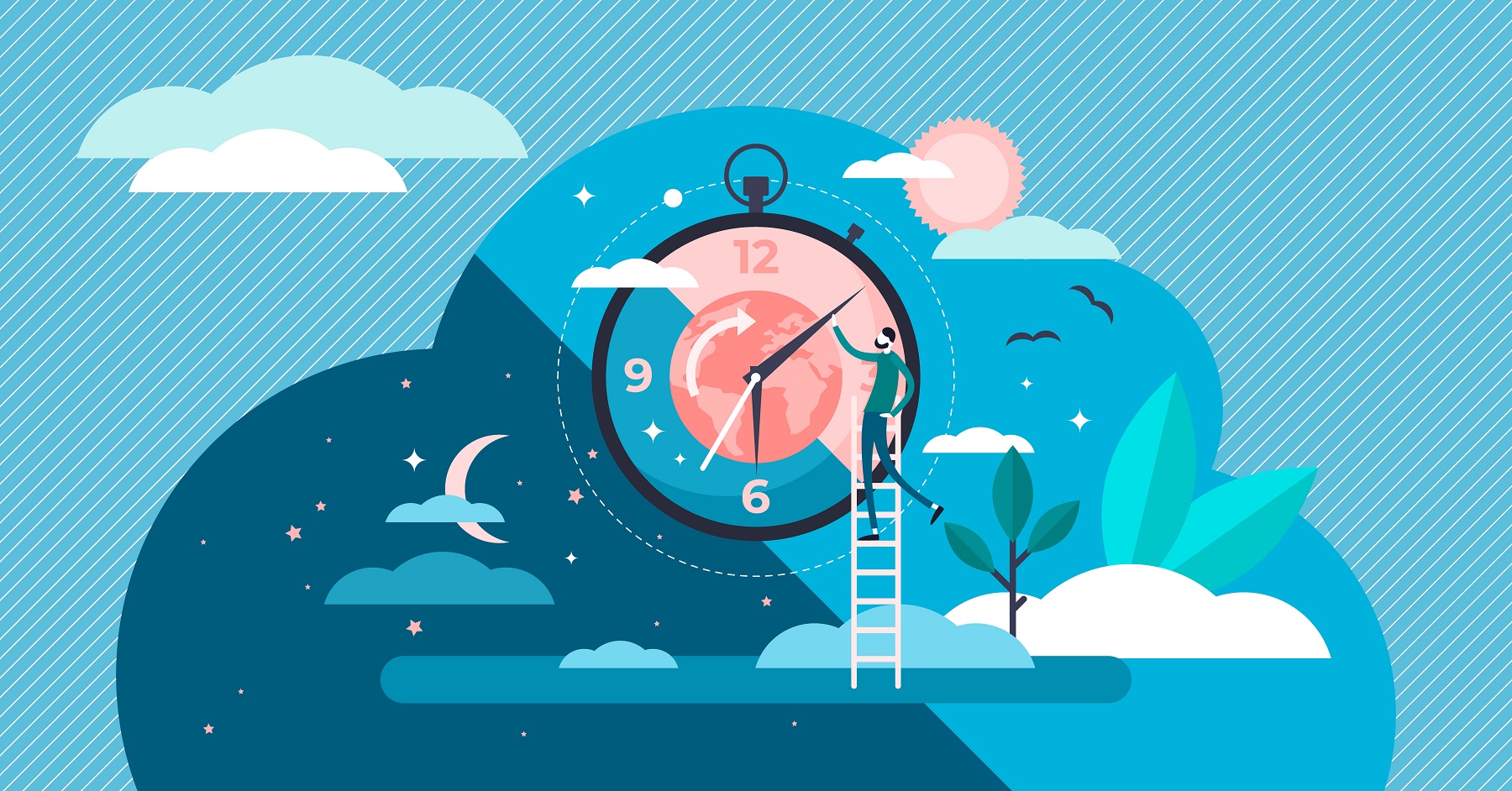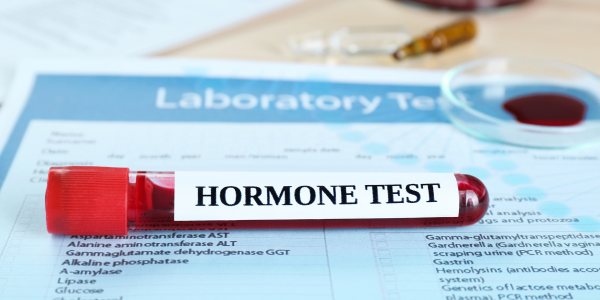

In our busy culture, sleep is one of the most overlooked activities. Here’s why sleep is so important and the consequences of lack of sleep.
You’ve heard it from doctors before, “Get at least 7-9 hours of sleep per night.” And you’ve probably experienced the benefits of a restful night’s slumber. But despite the advice and obvious benefits, Americans are getting less sleep than what’s recommended. In fact, the average American gets less than seven hours of sleep per night.In this busy culture, it’s easy to prioritize your work, family, and relationships over sleep. Yet that might not be the best thing for your overall health.Why does your body need sleep? What happens if you’re not getting enough sleep?How can you get a better night’s rest?Let’s explore the answers to these questions so you can reap the full benefits of high-quality sleep.
What Is Sleep?
While sleep is a natural part of life, scientists are still doing research to understand what exactly sleep is. They do know that sleep reduces your responses to external stimuli. However, many of your body systems actually remain active while you’re sleeping. For example:- Your brain is able to get rid of a toxic protein called 𝛃-amyloid while you sleep.
- Your muscle cells and other body systems can repair themselves.
- Vital hormones like melatonin are released to help enhance your sleep patterns.
What Are Sleep-Wake Cycles and Circadian Rhythms?
Circadian rhythms are natural fluctuations that are part of your body’s internal 24-hour clock. If your internal clock is thrown off, you can experience health issues like obesity, depression, and insomnia. One of the most popular circadian rhythms is the sleep-wake cycle.Your sleep-wake cycle is the internal clock that tells your body to be awake for about 16 hours of daytime and to sleep during about 8 hours of nighttime. This sleep-wake cycle may differ for people who work night shifts since they sleep during the daytime, but ideally they would also be getting 8 hours of sleep.To dig into your sleep-wake cycle in more detail, you need to understand the different stages of sleep.What Are the Different Stages of Sleep?
While you’re asleep, your brain cycles through different stages of sleep. One sleep cycle consists of one stage of rapid eye movement (REM) and three stages of non-rapid eye movement (NREM). You’ll normally go between four to six complete sleep cycles per night.Depending on your age and lifestyle, the amount of time you spend in the REM and NREM cycles will differ, but they follow this general pattern:- NREM Stage 1: Once you fall asleep, your body enters NREM Stage 1 which lasts up to 5 minutes. During this time, it may be easy for you to wake up from external stimuli such as a loud sound.
- NREM Stage 2: If you stay asleep, your body enters NREM Stage 2. The first NREM Stage 2 will last 10-25 minutes. However, if you complete an entire sleep cycle and begin a new one, then the following NREM Stage 2 lengths will increase. The normal length of time is 10-60 minutes.
- NREM Stage 3: Other names for NREM Stage 3 are slow-wave sleep, delta sleep, or deep sleep. This stage lasts 20-40 minutes.
- REM Sleep: The first REM cycle is 10 minutes but increases in length the longer that you sleep. In an 8-hour sleep cycle, the last REM cycle will last approximately 60 minutes. You dream and your mind is able to consolidate memories during REM sleep. When you get quality sleep, you’ll cycle through 4-6 REM cycles per night.
Let’s Explore Lack of Sleep
It’s easy to prioritize other activities over sleep – especially if you’re in a busy season of life. But there’s a reason why your doctor is telling you to get at least 7-9 hours of sleep per night. If you don’t, there may be health consequences.What Causes Lack of Sleep?
In addition to staying up on purpose due to a job or other life demands, it’s easy not to get quality sleep if you’re dealing with acute or chronic insomnia.In many insomnia cases, stress is the driving factor. And stress can come from just about anywhere – health challenges, work, finances, family, traumatic events, etc.Lack of sleep may also be triggered by mental health disorders such as depression, anxiety, or by medications, pain, or stimulants such as caffeine–especially if consumed in excess and/or late in the day.Other environmental factors like exposure to bright lights in the evening, noises, and high temperatures can also influence sleep.It’s important to address the root issues of your lack of sleep in order to ensure you’re going through complete sleep cycles and your body is getting the rest it needs. I’ll share a resource that I put together for you to do this at the end of this post.What Can Lack of Sleep Do to You and Your Body?
Dr. Matthew Walker, a Professor of Neuroscience and Psychology at the University of California Berkeley and Founder and Director of the Center of Human Sleep Science wrote a New York Times Bestselling book, “Why We Sleep: Unlocking the Power of Sleep and Dreams.” In this book, he mentions a number of problems your body faces when you don’t get enough sleep.Some problems related to inadequate sleep include:- Memories can’t enter or form properly. Dr. Walker describes your brain as your email inbox. Your memories are incoming emails. If you don’t get enough sleep, your brain can’t form memories which can affect your short and long-term memory. In other words, your inbox can’t receive incoming mail.
- Toxic protein 𝛃-amyloid can’t be cleared. During sleep, your body needs to get rid of toxic wastes such as 𝛃-amyloid. If you don’t, 𝛃-amyloid can accumulate over time which can contribute to dementia and other memory issues as you age.
- Your cardiovascular system can’t function properly. Researchers studied the rates of heart attacks after the “Spring Forward” and “Fall Back” time changes. They found that a lack of sleep is connected to an increased risk of having a heart attack. This shows the powerful effect that just one extra hour of sleep can have on your body.
- Your immune system can’t function properly. Your immune system is like the army of your body. It contains natural killer cells that destroy dangerous cells like cancerous cells, bacteria, and viruses. If you don’t get enough sleep, the number of natural killer cells in your body decreases. This means your body may not be able to fight off infections which could lead to diseases. So as you can see, there aren’t many parts of your body that aren’t affected by a lack of sleep.
What Diseases Are Linked to Lack of Sleep?
Research shows that lack of sleep is tied to chronic diseases such as cardiovascular disease, obesity, type 2 diabetes, and depression. Let’s explore each of these:- Cardiovascular disease: Some people may deal with sleep apnea, a serious sleep disorder where you repeatedly stop breathing as you’re sleeping. Sleep apnea is linked to an increased risk of stroke, irregular heartbeats, high blood pressure, coronary artery disease, and atherosclerosis (hardening of your arteries). This can lead to devastating and even deadly effects.
- Obesity: Sleep is linked to your body’s metabolism. When you suffer from a lack of sleep, you’re more likely to consume more calories and have increased hunger. This is because lack of sleep impacts your hormones including increasing your hunger hormone ghrelin and decreasing your satiety hormone leptin.
- Type 2 Diabetes: Remember, sleep is tied to your hormones. When you’re not getting enough sleep, your Hemoglobin A1C levels (a marker for your long-term blood sugar levels) increases. And increased blood sugar levels may eventually lead to diabetes.
- Mood: Sleep can impact your ability to think clearly. It can also impact your emotions and cause chemical changes in your brain. This can contribute to depression, anxiety, and other mental health conditions.
Tips for Getting Quality Sleep
- Keep a consistent sleep schedule.
- Maintain an environment conducive for sleep
- Ensure an adequate intake of magnesium.
- Avoid eating before bedtime.
Ready for Some Quality Zzz’s?
Sleep is essential to your survival. And you spend about ⅓ of your life sleeping. If you’re not getting enough sleep or your sleep quality has diminished, it’s important to understand why. Working with your doctor on a sleep protocol can help you now and for the rest of your life.If you’re interested in learning how to increase your quality and quantity of sleep and how this ties in with your general health, I created a resource with you in mind. It’s my “7 Weeks to Your Healthiest Self Masterclass.” In this workshop, you’ll learn:- The root causes of your health issues
- How simple lifestyle changes can make a drastic difference in your health
- How to cook simple yet delicious meals that will improve your sleep
- Video modules
- My e-book
- A resource guide
- A printable food tracker
Share:
Facebook
Twitter
Pinterest
LinkedIn
Dr. Emily Parke
Dr. Emily Parke, D.O., is a certified functional medicine doctor, board-certified in anesthesiology & pediatric anesthesiology, and trained in medical acupuncture. She’s an experienced speaker in the medical and functional medicine community, and presently gives talks on a wide array of subjects.
Social Media
Most Popular Posts
Get The Latest Updates
Subscribe To Our Newsletter
Read all of Dr. Emily’s latest updates to stay informed about ways you can upgrade your approach to wellness.
No spam, notifications only about new products, updates.
Related Posts

New Podcast Episode: My journey into functional medicine + what I’ve learned
I’m excited to share that I recently joined DeLo for Episode 165 of the On the DeLo podcast! In this conversation, we explored my journey

Understanding the Essential Labs for Women on Hormone Replacement Therapy (HRT)
So what are the minimum labs we’re looking at when we do hormone replacement therapy? We obviously want to look at an estrogen level, so

How to figure out the right amount of HRT in women
What about checking lab values when you’re on hormone replacement therapy? I do find it to be helpful, but we also want to consider symptoms.

Did you know there’s a difference between food allergies, sensitivities, and intolerances?
Did you know that there’s a difference between food allergies, food sensitivities and food intolerances? Food allergies, the reactions tend to happen pretty immediately and
